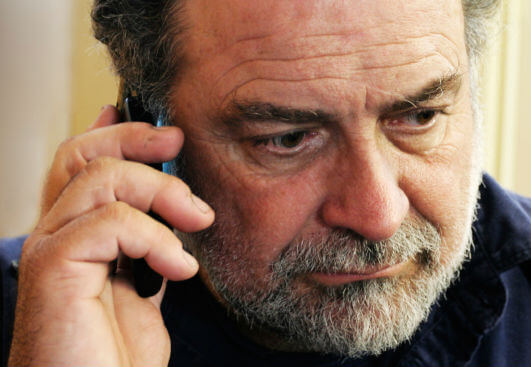Q. Recently a reader complained about irreverent behavior in church prior to Mass, including cellphone use. As part of your response, you stated that cellphone use is always inappropriate. Judging behavior is also ugly behavior, at least as repugnant as irreverence.
I use my cellphone prior to Mass while seated in church. I read the day’s Scriptures along with meditations on those readings from several sources. (I particularly like the daily reflections from the University of Notre Dame and from the Jesuit community.) I will continue this practice despite anyone’s misplaced judgments. (City of origin withheld)
Q. I take issue with your recent comments on cellphone usage in church, as appeared in your column in Our Sunday Visitor. I fully agree with the inappropriateness of talking or texting before, during or even after the service is over.
However, using the Laudate app, I read the daily Scriptures, the Loreto Litany (after saying the rosary) and a number of other prayers before Mass. It never really occurred to me that what I do quietly on my cellphone is offensive to others. (Lawrenceville, Illinois)
A. The letters above are indicative of those that arrive each week in response to this column. (Did you notice – as I did – a slight difference in tone between the two letters?) Such letters are valuable, serving to fill out my own answers and offering observations that cannot be included in a few short paragraphs.
The original question had complained about people talking and laughing on cellphones – or texting – before Mass (in fact, during exposition of the Blessed Sacrament). I did offer my own view that “the use of cellphones is never proper in church – whether to speak or to text.”
I neglected to mention that there are some legitimate and laudable uses that involve neither speaking nor texting – most notably, to reflect on the Scriptures or to read prayers in preparation for the Eucharist. So, a mea culpa from me and a thank-you to those who responded.
Q. Can priests baptize someone if they are in the state of mortal sin? My daughter was baptized by our parish priest in the 1980s. A few months later, he committed suicide. The reason given was that he was being accused of sexual abuse.
If that was true, was he allowed to baptize? And is my daughter legitimately baptized, or does she need a new baptism? (Manassas, Virginia)
A. The church has always taught that the validity of a sacrament does not depend on the state of soul of the human minister. (The technical theological language is that the sacraments act “ex opere operato” – i.e., from the very fact of the action’s having been performed.) With every sacrament, Jesus Christ is the principal actor, even when the minister is unworthy.
The Catechism of the Catholic Church expresses it this way: “From the moment that a sacrament is celebrated in accordance with the intention of the church, the power of Christ and his Spirit acts in and through it, independently of the personal holiness of the minister” (No. 1128).
That having been said, a priest of course must strive always to remain in the state of grace so that he may be a worthy representative of Christ, in whose person he acts in conferring a sacrament.
So, to answer your question: Your daughter was validly baptized and no “re-baptism” needs to take place. What you could do, though, is to offer a prayer or two for the priest who baptized her.
Had the priest been guilty of sexual abuse, it could be that he had confessed the sin and been forgiven long before he baptized your daughter. Still, though, he was deeply troubled – as the suicide would indicate – and could profit from your prayers.
(I should mention, too, that –- in contrast to the practice a generation or two back – the church now celebrates a funeral Mass in church for someone who takes his own life; the thinking is that the person may well have been so disturbed as to mitigate somewhat his own moral responsibility.)
Copyright ©2017 Catholic News Service/U.S. Conference of Catholic Bishops.



